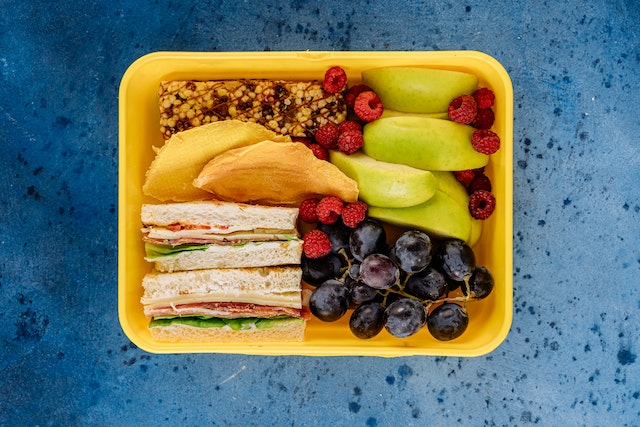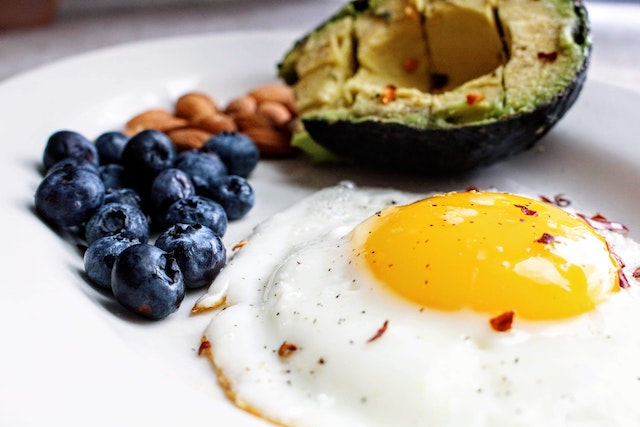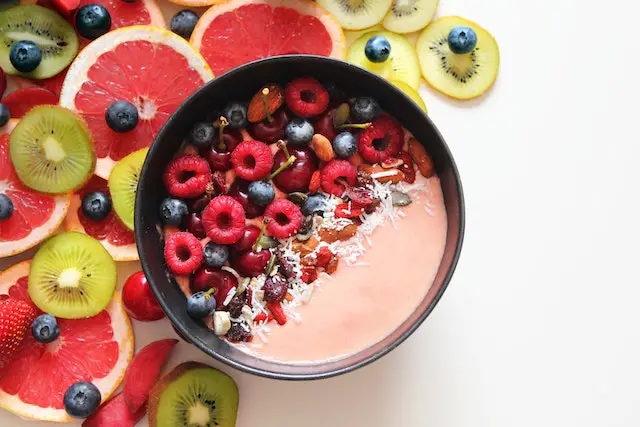So you’ve probably wondered if there are any specific diets that soccer players follow, right? Well, you’re in luck! This article is here to shed some light on the subject.
Whether you’re a soccer enthusiast or just curious about the eating habits of professional athletes, we’ll explore the dietary strategies adopted by soccer players to fuel their performance on the pitch. From carbohydrate loading to protein-packed meals, get ready to uncover the secrets behind what keeps these athletes at the top of their game.
In this article, we will explore the various nutritional needs of soccer players and provide tips on pre-match, during-match, and post-match nutrition, as well as weight management, supplements, special considerations for vegan players, meal planning tips, and key takeaways for soccer players.
Nutritional Needs of Soccer Players
Soccer is a physically demanding sport that requires optimal nutrition to support performance, endurance, and recovery. As a soccer player, it is important to fuel your body with the right nutrients to stay energized and maintain peak performance on the field.
Energy Requirements
One of the most crucial aspects of nutrition for soccer players is meeting their energy requirements. Soccer is an intense sport that can burn a significant amount of calories, especially during matches and training sessions. The energy requirements of soccer players can vary depending on factors such as age, gender, body composition, training intensity, and individual metabolism.
To ensure adequate energy levels, it is essential to consume a balanced diet that includes carbohydrates, proteins, and fats. Carbohydrates are the primary source of fuel for soccer players, as they provide the necessary energy for muscle contractions and high-intensity movements on the field. Protein is important for muscle repair and recovery, while fats play a role in hormone regulation and providing sustained energy.
Carbohydrates
Carbohydrates are the key macronutrient for soccer players due to their immediate availability as energy. It is recommended that carbohydrates make up around 55-60% of a soccer player’s total caloric intake.

Good sources of carbohydrates for soccer players include whole grains, fruits, vegetables, and legumes. These foods provide both simple and complex carbohydrates, which are necessary for quick bursts of energy and sustained fuel during matches.
Protein
Protein is essential for soccer players to support muscle repair, growth, and recovery. The recommended protein intake for soccer players is around 1.2-1.7 grams per kilogram of body weight per day.
Good sources of protein for soccer players include lean meats, poultry, fish, tofu, beans, lentils, dairy products, and eggs. It is important to distribute protein intake evenly throughout the day to optimize muscle protein synthesis.
Fats
While carbohydrates are the primary source of energy for soccer players, fats also play a crucial role in their nutrition. Healthy fats, such as those found in avocados, nuts, seeds, and olive oil, provide essential fatty acids and help in hormone regulation.
Including a moderate amount of healthy fats in your diet can help maintain satiety and provide sustained energy throughout the day.
Hydration
Proper hydration is essential for soccer players to maintain performance, regulate body temperature, and prevent dehydration. It is recommended to drink water throughout the day and during training sessions and matches.
Additionally, electrolytes lost through sweat should be replenished to maintain proper hydration levels. Electrolyte-rich beverages or sports drinks can be consumed during intense physical activity to replace lost fluids and minerals.
Pre-Match Nutrition
The pre-match period is crucial for soccer players as it sets the foundation for energy levels and performance on the field. Proper pre-match nutrition focuses on consuming adequate carbohydrates to top up glycogen stores and ensure sustained energy throughout the game. Here are some key considerations for pre-match nutrition:

Carbohydrate Loading
Carbohydrate loading, also known as glycogen loading, is a technique used by athletes to maximize glycogen stores in the muscles and liver. This technique involves consuming a high-carbohydrate diet in the days leading up to a match or competition. Carbohydrate loading can help delay the onset of fatigue, improve endurance, and enhance overall performance on the field.
To carboload effectively, aim to consume around 7-10 grams of carbohydrates per kilogram of body weight in the 24-48 hours leading up to a match. Focus on consuming complex carbohydrates such as whole grains, pasta, rice, potatoes, and fruits to provide sustained energy during the game.
Timing of Meals
The timing of meals is crucial to ensure optimal performance on the field. Aim to have a pre-match meal 2-3 hours before the game to allow for proper digestion. This meal should be rich in carbohydrates, moderate in protein, and low in fat to avoid any digestive discomfort during the match.
If you have less than 2-3 hours, opt for a smaller, easily digestible snack that is carbohydrate-focused. Examples include a banana with nut butter, a sports drink, or a granola bar. It is important to experiment with different foods and timings to find what works best for your individual needs.
Pre-Match Meal Ideas
Here are some pre-match meal ideas that can provide the necessary carbohydrates, proteins, and fluids to fuel your performance on the field:
- Grilled chicken breast with brown rice and steamed vegetables
- Whole wheat pasta with marinara sauce and lean ground turkey
- Quinoa salad with mixed vegetables and grilled tofu
- Oatmeal topped with berries and a side of Greek yogurt
- Whole grain sandwich with lean deli meat, lettuce, and tomato
Remember to listen to your body and choose foods that you enjoy and digest well. It is important to avoid trying new or unfamiliar foods on match days to prevent any digestive issues or discomfort.
During-Match Nutrition
Sustaining energy levels and preventing dehydration during a match is crucial for optimal soccer performance. Soccer players should focus on hydration strategies and quick snacks that can be consumed during breaks or halftime.
Hydration Strategies
Proper hydration is vital to prevent dehydration and maintain performance during a match. It is recommended to start hydrating well before the match begins and to continue drinking fluids throughout the game. General guidelines suggest consuming around 400-600 ml (about 13-20 ounces) of fluid 2-3 hours before the match and an additional 200-300 ml (about 7-10 ounces) 10-20 minutes before the game.
During the match, it is important to drink fluids at regular intervals, especially during breaks or halftime. Water is typically sufficient for matches lasting less than an hour, but for longer matches or intense physical activity, an electrolyte-rich beverage or sports drink can provide additional benefits by replenishing lost fluids and minerals.
Quick Snacks
During breaks or halftime, quick snacks can help maintain energy levels and provide a boost of nutrients. It is best to choose easily digestible snacks that are rich in carbohydrates and provide quick energy. Some examples of quick snacks for soccer players include:
- Fresh or dried fruit
- Energy gels or chews
- Granola bars
- Rice cakes with honey or nut butter
- Sports drinks or electrolyte gummies
These snacks can be easily carried in a bag or pocket and consumed during short breaks or halftime. Experiment with different options to find what gives you the best energy boost and fits well within your personal preference.

Post-Match Nutrition
Post-match nutrition plays a crucial role in recovery and preparing your body for future performance. Proper nutrient intake after a match helps replenish glycogen stores, repair muscle damage, and promote overall recovery. Here are some key considerations for post-match nutrition:
Recovery Fuel
To promote optimal recovery, it is important to consume a combination of carbohydrates and protein within 30-45 minutes after a match. This timing is known as the “glycogen window,” where the body is most receptive to replenishing nutrients.
Aim to consume a carbohydrate-to-protein ratio of 3:1 or 4:1 for optimal recovery. Good post-match recovery fuel options include chocolate milk, a protein shake with fruit, yogurt with granola, or a turkey sandwich on whole grain bread.
Meal Timing
Besides immediate recovery fuel, it is important to focus on regular meals following a match to supply necessary nutrients for muscle repair and growth. Ideally, within 2-3 hours after a match, consume a balanced meal consisting of carbohydrates, proteins, and healthy fats. This meal should help replenish glycogen stores, repair muscle damage, and aid in overall recovery.
Post-Match Meal Ideas
Here are some post-match meal ideas that provide the necessary carbohydrates, proteins, and nutrients to aid in recovery:
- Grilled salmon with quinoa and roasted vegetables
- Chicken stir-fry with brown rice and mixed vegetables
- Bean and vegetable burrito with whole wheat tortilla
- Spinach salad with grilled chicken, cherry tomatoes, and avocado
- Whole wheat pasta with lean ground beef and tomato sauce
Personalize these meal ideas to your liking and consider incorporating a variety of colorful fruits and vegetables to enhance nutrient intake and support recovery.
Weight Management
Weight management is an important aspect for soccer players looking to optimize their performance and body composition. Proper weight management involves understanding body composition, weight loss strategies, and weight gain techniques based on individual goals.
Body Composition
Understanding body composition is crucial for setting realistic weight management goals. Body composition refers to the ratio of lean mass (muscle, bones, organs) to fat mass in the body. For optimal performance, soccer players should aim to maintain a healthy body composition that allows for optimal strength, speed, and agility on the field.
Body composition can be assessed through various methods such as skinfold testing, bioelectrical impedance analysis, or DEXA scans. These tests provide valuable information about fat mass, muscle mass, and overall body composition.
Weight Loss

Some soccer players might have the goal of losing weight to improve agility or overall performance. When aiming for weight loss, it is essential to do so in a safe and gradual manner. Rapid weight loss can lead to muscle loss, decreased energy levels, and negatively impact performance on the field.
To achieve sustainable weight loss, it is important to create a moderate calorie deficit through a combination of diet and exercise. Focus on consuming nutrient-dense foods, reducing portion sizes, and increasing physical activity. It is advisable to consult with a sports dietitian or nutritionist to develop a personalized weight loss plan that meets your individual needs.
Weight Gain
On the other hand, some soccer players might aim to increase muscle mass and gain weight to improve strength and power on the field. Weight gain should also be approached in a gradual and controlled manner to avoid excessive fat gain or negative impacts on performance.
To promote weight gain, focus on consuming a slight calorie surplus and increasing nutrient-dense foods in your diet. Additionally, incorporate strength training exercises to stimulate muscle growth. It is important to work with a sports dietitian or nutritionist to develop a targeted weight gain plan and ensure that muscle mass is gained in a healthy and sustainable way.
Supplements
Supplements can be a useful addition to a soccer player’s nutrition regimen, but they should never replace a well-balanced diet. Here are some common supplements that soccer players may consider:
Performance-Enhancing Supplements
Performance-enhancing supplements such as creatine and caffeine are commonly used by soccer players to improve endurance, strength, and overall performance. Creatine has been shown to increase high-intensity exercise capacity, while caffeine can enhance alertness and reduce fatigue. However, it is important to use these supplements under the guidance of a sports healthcare professional and ensure they comply with sports regulations.
Supplements for Recovery
Recovery supplements such as protein powders, branched-chain amino acids (BCAAs), and omega-3 fatty acids are popular among soccer players to support muscle repair and reduce inflammation. Protein powders can help meet daily protein needs, BCAAs may aid in muscle recovery, and omega-3 fatty acids have anti-inflammatory properties. It is important to choose high-quality supplements and consult with a sports dietitian or healthcare professional to determine their appropriate use.

Special Considerations for Vegan Players
Vegan soccer players have specific nutritional considerations due to the exclusion of animal products from their diets. However, with proper planning and attention to nutrient intake, it is possible for vegan players to meet their nutritional needs and perform at their best on the field.
Meeting Nutritional Needs
To meet their nutritional needs, vegan players should focus on consuming a wide variety of plant-based protein sources such as legumes, tofu, tempeh, seitan, soy products, quinoa, and amaranth. It is also important to ensure adequate intake of essential nutrients such as iron, zinc, vitamin B12, calcium, and omega-3 fatty acids by incorporating fortified foods or supplements into their diet.
Sample Vegan Meal Plan
Here is a sample vegan meal plan for a soccer player:
- Breakfast: Overnight oats with almond milk, chia seeds, berries, and a scoop of plant-based protein powder.
- Mid-Morning Snack: Hummus with carrot sticks and whole grain crackers.
- Lunch: Quinoa salad with mixed vegetables, chickpeas, and a lemon-tahini dressing.
- Afternoon Snack: Fruit smoothie with almond milk, spinach, banana, and a scoop of pea protein powder.
- Dinner: Stir-fried tofu with brown rice, broccoli, and bell peppers.
- Evening Snack: Mixed nuts and seeds, or a vegan protein bar.
This sample meal plan provides a variety of plant-based protein sources, whole grains, fruits, and vegetables to meet the nutritional needs of a vegan soccer player.
Meal Planning Tips
Meal planning plays a crucial role in ensuring that soccer players meet their nutritional needs for optimal performance. Here are some tips for effective meal planning:
Balancing Macronutrients
When planning meals, aim to ensure a balance of carbohydrates, proteins, and fats. Each meal should include a good source of carbohydrates for energy, lean proteins for muscle repair, and healthy fats for overall health and satiety. A well-balanced meal provides sustained energy and supports recovery.
Tailoring Diets to Individual Players
Every soccer player is unique, and it is important to adapt meal plans to individual needs and preferences. Consider food allergies, dietary restrictions, cultural preferences, and personal taste when creating meal plans. Fine-tuning meal plans to meet individual requirements can help promote long-term adherence and optimal performance.
Key Takeaways for Soccer Players
Proper nutrition is crucial for soccer players to maximize performance, endurance, and recovery. Here are some key takeaways to remember:

Importance of Proper Nutrition
Good nutrition is the foundation for optimal soccer performance. Fuel your body with the right balance of carbohydrates, proteins, and healthy fats to support energy levels, muscle repair, and overall health.
Consulting with a Sports Dietitian
If you have specific nutritional goals or challenges, it is advisable to consult with a sports dietitian or nutritionist who can provide personalized advice and guidance based on your unique needs.
Conclusion
As a soccer player, paying attention to your nutritional needs is essential for optimal performance, endurance, and recovery. Prioritize carbohydrates for energy, incorporate protein for muscle repair, and include healthy fats for sustained energy. Stay hydrated, plan your meals accordingly, and consider your individual goals and preferences. With the right nutrition and proper planning, you can fuel your body to perform at your best on the soccer field.


